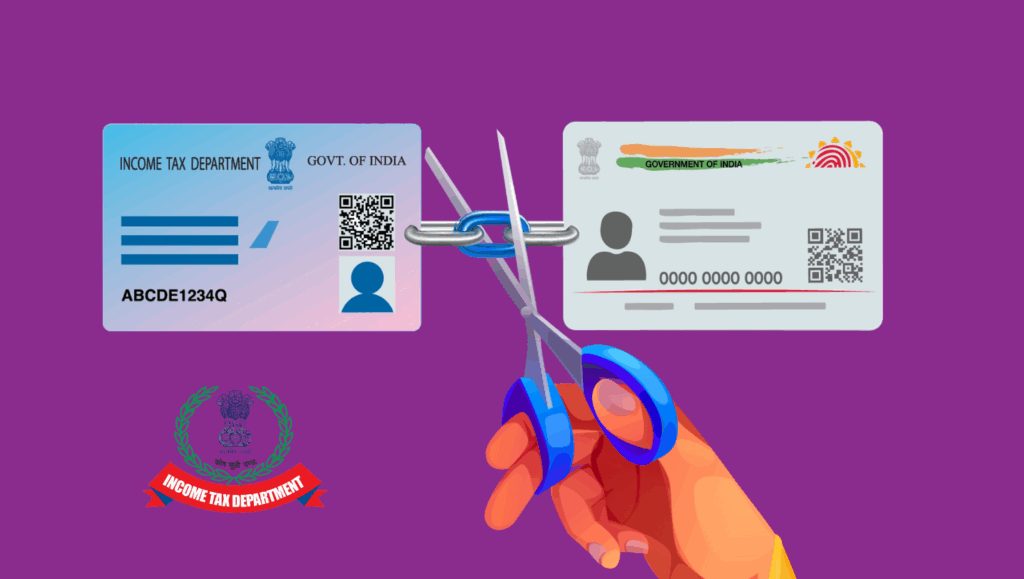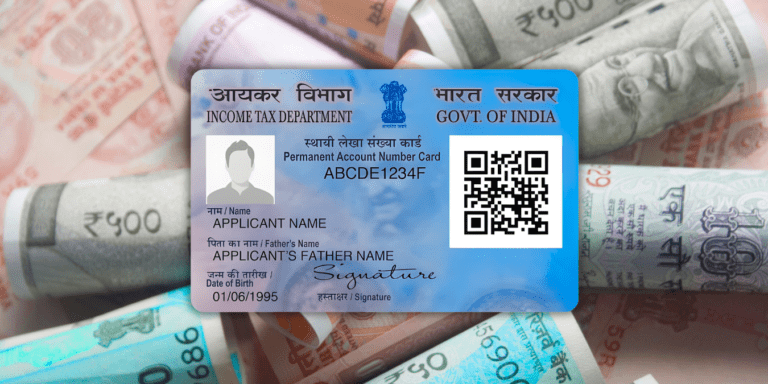
The New Income Tax Bill 2025, passed August 11, 2025! From tax officials accessing your emails and social media to crypto crackdowns and homeowner relief, the Parliamentary Select Committee’s 285 recommendations promise a tax revolution. Will your digital assets and privacy survive?
Have you ever wondered what happens when the government decides to rewrite a tax law that’s been the backbone of India’s fiscal system for over six decades? Picture this: a bill promising simplicity, clarity, and taxpayer relief, but tucked within its pages are provisions that could let tax officials peek into your private emails, social media accounts, and even your cryptocurrency wallets. Sounds like a plot twist straight out of a financial thriller, doesn’t it? Welcome to the New Income Tax Bill 2025, passed in the Lok Sabha on August 11, 2025, after incorporating recommendations from the Parliamentary Select Committee. If you’re searching for “New Income Tax Bill 2025 updates,” “Parliamentary Select Committee recommendations income tax,” or “income tax changes India 2025,” buckle up—this blog post unveils the top changes with suspense, surprises, and the latest data to keep you hooked. Let’s dive into the drama of India’s tax revolution, one shocking reveal at a time.
The Stage Is Set: A Tax Law Overhaul Like Never Before
The Income Tax Bill 2025, introduced by Finance Minister Nirmala Sitharaman on February 13, 2025, aimed to replace the archaic Income Tax Act of 1961. The original act, with its 5.12 lakh words, 819 sections, and 47 chapters, was a compliance nightmare for taxpayers and administrators alike. The new bill promised to slash the word count to 2.6 lakh, reduce sections to 536, and simplify tax laws for a digital-first India. But the plot thickened when the bill faced intense scrutiny from a 31-member Parliamentary Select Committee, chaired by BJP MP Baijayant Panda. Their 4,575-page report, tabled on July 21, 2025, proposed 285 recommendations, including 32 major changes, leading to the bill’s withdrawal on August 8, 2025, and its reintroduction as the Income Tax (No. 2) Bill 2025 just three days later. Why the rush? To streamline a single, cohesive draft that avoids confusion and sets the stage for a taxpayer-friendly law effective from April 1, 2026.
But here’s the kicker: amid promises of simplicity, the bill retains controversial powers for tax officials to access your digital life—think emails, WhatsApp, and even your X posts. From crypto crackdowns to homeowner relief, the committee’s recommendations are a rollercoaster of surprises that could reshape your financial future. Let’s unravel the top 10 recommendations, packed with the latest data, expert insights, and suspenseful twists that will leave you questioning what’s next for your taxes.
1. Expanding Undisclosed Income to Virtual Digital Assets: A Crypto Bombshell?
Imagine tax officials raiding your home—not just for cash or gold, but for your hidden Bitcoin wallet. The Select Committee endorsed expanding the definition of undisclosed income in search cases to include virtual digital assets (VDAs) like cryptocurrencies and NFTs. Under the 1961 Act, undisclosed income was limited to physical assets like money, bullion, or jewelry. The New Income Tax Bill 2025 changes the game by targeting digital assets, aligning with the digital economy’s rise.
Why it’s shocking: India’s crypto market is booming, with over 100 million users and a projected market size of $241 million by 2030, per NASSCOM. This move could catch crypto investors off-guard, especially with penalties up to 200% of evaded tax for non-disclosure. The committee’s rationale? Modernize tax laws to combat black money in digital realms, aligning with global standards like the OECD’s crypto reporting framework. Suspense: Will this curb tax evasion or stifle India’s crypto innovation? For those searching “income tax on crypto India 2025,” it’s time to declare your VDAs—or face the consequences.
2. Faceless Assessment Schemes: Efficiency or Algorithmic Overreach?
Next up, a recommendation that promises transparency but raises eyebrows: the committee greenlit the central government’s power to frame new faceless assessment schemes. These schemes, carried over from the 1961 Act, use technology to eliminate human interaction in tax assessments and collections, with oversight through mandatory tabling in Parliament.
The attraction: CBDT data shows faceless assessments have slashed litigation by 30% since 2020, cutting resolution times from months to weeks. The suspense: Could algorithms lack the empathy needed for complex disputes? EY estimates these schemes could reduce compliance costs by 20%, aligning with PM Modi’s Digital India vision. For businesses searching “faceless assessment changes 2025,” it’s a trade-off: faster refunds but potentially rigid, automated decisions. Will this streamline your taxes or feel like Big Brother watching?
3. Access to Your Digital Life: The Privacy Invasion Twist
Hold your breath—here’s the recommendation sparking outrage: the committee retained provisions allowing tax officials to forcibly access social media, private emails, and virtual digital spaces during searches. The New Income Tax Bill 2025 extends search powers from physical premises to digital realms, enabling authorities to break into online accounts if document summons are ignored.
Why it’s controversial: With the Digital Personal Data Protection Act 2023 emphasizing privacy, this seems like a step backward. A 2025 Deloitte survey reveals 65% of Indians worry about government access to personal data. The hook: Rs 1 lakh crore in undisclosed income was detected via digital trails in FY24-25, justifying the move to tackle black money. Suspense: Will this survive judicial scrutiny, or will privacy advocates push back? If you’re googling “income tax privacy concerns 2025,” secure your digital footprints now—this recommendation is a red flag.
4. Beneficial Owner Definition for Loss Carry-Forward: A Startup Savior?
Now for a taxpayer-friendly surprise: the committee redefined “beneficial owner” to allow loss carry-forward when individuals gain direct or indirect share benefits in a tax year. This fixes drafting errors in the original bill, ensuring continuity with the 1961 Act.
Why it’s curiosity-piquing: India’s startup ecosystem, valued at $450 billion in 2025 per Startup India, often runs losses in early years. This could save billions in taxes by allowing loss offsets. The twist: It prevents abuse by shell companies, balancing relief with oversight. For those searching “loss carry forward changes New Income Tax Bill 2025,” this is a potential game-changer for entrepreneurs. Will it unlock growth or invite scrutiny?
5. Inter-Corporate Dividend Deduction Returns: A Corporate Lifeline?
Another crowd-pleaser: the committee reinstated the inter-corporate dividend deduction, absent in the initial draft, to prevent double taxation for holding companies.
The suspense: With corporate tax collections at Rs 10 lakh crore in FY25, this could lower effective tax rates by 2-3%, per EY analysis. The attraction: It’s a relief for conglomerates and investors searching “inter corporate dividend tax India 2025.” The catch: Anti-avoidance clauses might limit benefits. Will this boost corporate cash flows or spark new tax planning strategies?
6. 30% Deduction on House Property: A Real Estate Game-Changer?
Property owners, this one’s for you: the committee recommended a standard 30% deduction on house property income after municipal taxes, extending pre-construction interest deductions to let-out properties.
Why it’s surprising: Real estate contributes 7% to India’s GDP, and Knight Frank estimates this could boost rental yields by 15%. It also clarifies ambiguous terms like “in normal course,” simplifying compliance. Suspense: Will this make rental investments more attractive? For “house property tax deductions 2025,” this could save middle-class families thousands.
7. Nil TDS Certificates and Penalty Waivers: Relief for Small Taxpayers
For small taxpayers, here’s a suspenseful win: the committee proposed ‘Nil’ TDS certificates, discretionary penalty waivers for unintentional non-compliance, and refunds for delayed ITRs.
The data: 8 crore ITRs were filed by July 31, 2025, up 10% year-on-year, with penalties totaling Rs 5,000 crore last year. The twist: Discretionary waivers depend on officials’ leniency. For “TDS changes New Income Tax Bill 2025,” this could ease compliance burdens—but will authorities play fair?
8. Clarity on Non-Performing Assets (NPAs): Ending Banking Disputes
A technical yet impactful recommendation: clearer NPA definitions to reduce tax-banking disputes. With NPAs at 3.9% of advances in 2025 (RBI data), this could cut litigation by 20%.
Why it matters: Disputes over NPAs have clogged tribunals, delaying resolutions. Suspense: Will this streamline banking compliance or create new loopholes? For “NPA tax changes 2025,” it’s a step toward clarity.
9. Definitions for Parent Companies and Non-Profits: A Fairer Framework
The committee pushed for precise “parent company” definitions and stronger provisions for non-profits and trusts, ensuring tax exemptions for anonymous contributions.
The hook: Charitable contributions hit Rs 1 lakh crore in FY25, per government data. This protects non-profits without loopholes. Suspense: Will it simplify trust compliance or invite stricter audits? For “non-profit tax exemptions 2025,” it’s a balanced move.
10. Aligning with the 1961 Act: Continuity Amid Change
Finally, the committee harmonized the bill with the 1961 Act, fixing drafting anomalies without policy shifts. This includes clause-by-clause tweaks for clarity across 536 sections.
Why it’s critical: The government projects a 50% litigation reduction over five years, with the tax-to-GDP ratio rising to 12% by 2030. Suspense: Will this truly simplify taxes, or are more surprises hidden in the fine print?
The Big Picture: A Tax Revolution with Twists
The New Income Tax Bill 2025 is more than a facelift—it’s a seismic shift aiming to modernize India’s tax system for a $5 trillion economy. From crypto crackdowns to privacy concerns, the Parliamentary Select Committee’s 285 recommendations blend simplification with controversy. The suspense: Will these changes ease compliance or spark legal battles? With implementation set for April 1, 2026, taxpayers must stay vigilant. For those searching “New Income Tax Bill 2025 updates” or “income tax changes India 2025,” this is your guide to navigating the future. Stay tuned—your taxes might never be the same.
































